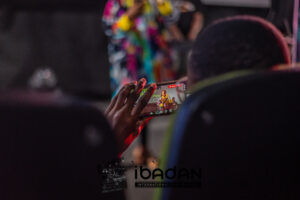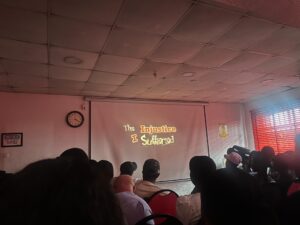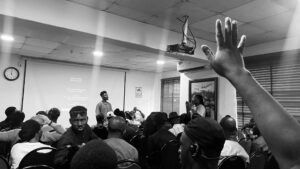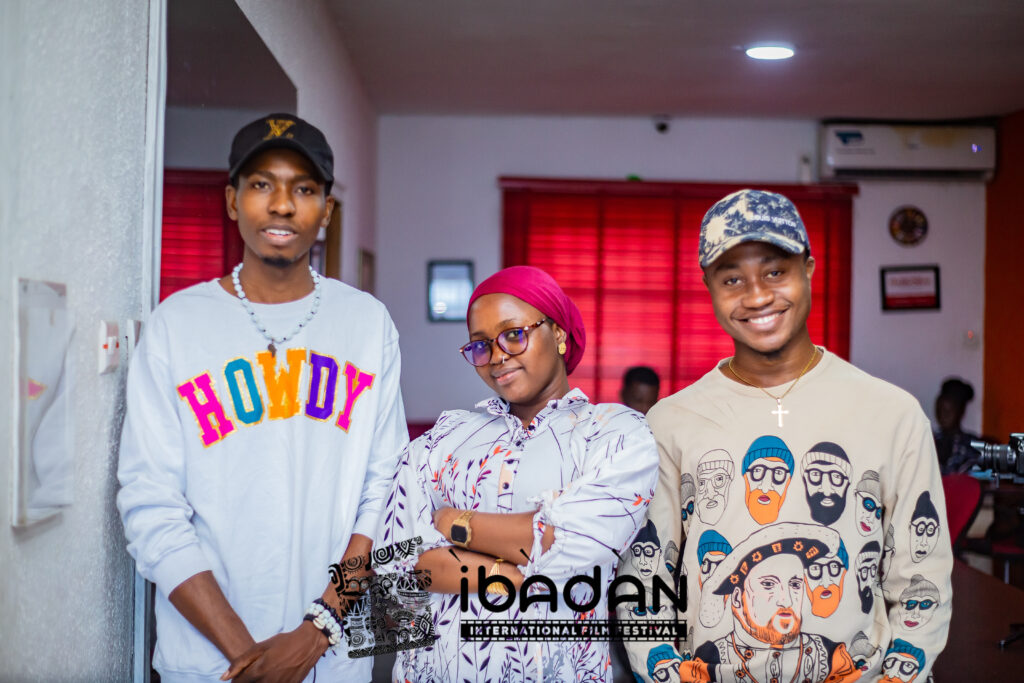In a time when societies are struggling with complex social issues, the power of storytelling has never been more critical. It is through stories that we understand the world, confront harsh realities, and imagine better futures. Hence, Film is a tool for social change.
The screening of The Injustice I Suffered, a documentary on police brutality at the Ibadan International Film Festival (IIFF) stands as a testament to the role of creatives in shaping narratives of social justice. This project, born out of the 2023 Civic Hive Creative Change Makers fellowship, is a reflection of how art can become a catalyst for change in our communities.
- The Power of Storytelling
Storytelling has always been a tool for social transformation. It enables us to see the world through different lenses, evoke emotions, and drive action. In recent times, the film industry has become a more potent force for advocacy, amplifying marginalized voices and bringing social issues to the forefront.

The Injustice I Suffered, a capstone documentary project from the Civic Hive Creative Change Makers fellowship, with a clear objective to shed light on the issue of police brutality in Nigeria. By focusing on individual stories, the documentary explores the cause and effect, emotional and psychological scars left by unlawful incarceration and arrest, drawing attention to a reality often ignored or silenced.
- Synopsis of The Injustice I Suffered
The Injustice I Suffered tells the story of a victim of police Brutality while emphasizing the importance of organizations that provide support and advocates for change in positions of power. It also captures the victim’s personal ordeal from arrest, to being wrongfully accused and finally spending months in prison without rightful justification. This documentary was directed by Anointed Sulolaoluwa Falade & Arafat Oseni
- The Screening at the Ibadan International Film Festival
For the first time ever, the documentary was screened at the IIFF which was a remarkable milestone. IIFF is a platform that showcases diverse African stories, and the documentary on police brutality seamlessly fits into the festival’s theme of spotlighting narratives that resonate deeply with societal challenges.
 The audience’s emotional, raw and thought provoking response sparked conversations for more than an hour and left a note to attendees. For many, it was not just a documentary, it was a mirror reflecting the harsh realities and their experience of police violence In Ibadan as the protagonist of the documentary was also arrested and prosecuted in Ibadan. The screening ignited important discussions about accountability, the role of law enforcement, and the urgent need for systemic reform.
The audience’s emotional, raw and thought provoking response sparked conversations for more than an hour and left a note to attendees. For many, it was not just a documentary, it was a mirror reflecting the harsh realities and their experience of police violence In Ibadan as the protagonist of the documentary was also arrested and prosecuted in Ibadan. The screening ignited important discussions about accountability, the role of law enforcement, and the urgent need for systemic reform.
- Spotlighting the Works of Social Justice organizations
This documentary would not have been made possible without the support and collaboration of organizations like Citizens GAVEL. Citizens Gavel Foundation for Social Justice is a non-governmental organization with the aim of increasing the pace of justice delivery through access to justice, digital technology and citizens’ engagement.
Since the inception of the organization five years ago, they have tracked court cases, promoted transparency and accountability in the justice sector and also provided free legal support for indigent persons while advocating for the rights of indigent Nigerians.
Citizens Gavel have represented numerous victims of human rights abuse in court and have been able to get recompense for them.
- Why Empowering Creatives Matters
The Creative Change Makers fellowship is based on a simple yet profound belief: that creatives can be at the forefront of societal change. In a world where social issues are often entangled in political discourse or ignored entirely, creative storytelling provides an accessible medium for engagement. Film, in particular, can humanize complex problems, foster empathy, and inspire collective action.
 For the fellows, this project was more than a capstone, it was a tool to effect real-world change. By empowering creatives to tell stories, that goes beyond the screen. But also resonate, spread, and stir societal change.
For the fellows, this project was more than a capstone, it was a tool to effect real-world change. By empowering creatives to tell stories, that goes beyond the screen. But also resonate, spread, and stir societal change.
When creatives are empowered with resources, mentorship, and platforms like the Creative ChangeMakers Fellowship, they can challenge entrenched systems of power, amplify the voices of the marginalized, and drive advocacy for justice. Documentary like The Injustice I Suffered can change perceptions, influence policies, and ultimately shape a more equitable society.
Conclusion
The screening of the documentary at IIFF marks the beginning of a larger movement . The impact of police brutality in Nigeria is far from resolved, but as more creatives step up to tell these crucial stories, the chances for meaningful change grow stronger. As we continue to empower young creatives, we can look forward to a future where art and advocacy walk hand in hand.
One of the many takeaways from the reactions after screening was when an attendee instigated that the story might be untrue and one sided because it doesn’t to full extent capture the reactions of police officers who were involved in the Case. This spiked several responses from other attendees who felt that the police would never agree to be filmed or that once an interview with the police is infused in the documentary, it invalidates the essence of documenting the victim’s experience.
In the end, the screening at the Ibadan International Film Festival is a reminder of the role creativity can play in reshaping society. Through the lens of a camera, the world saw the harsh realities of police brutality and the potential for change. Now, it’s up to all of us to keep that conversation alive. Through films, music, writing, Spoken Words, Poetry and other art forms, we can inspire change, one story at a time.
